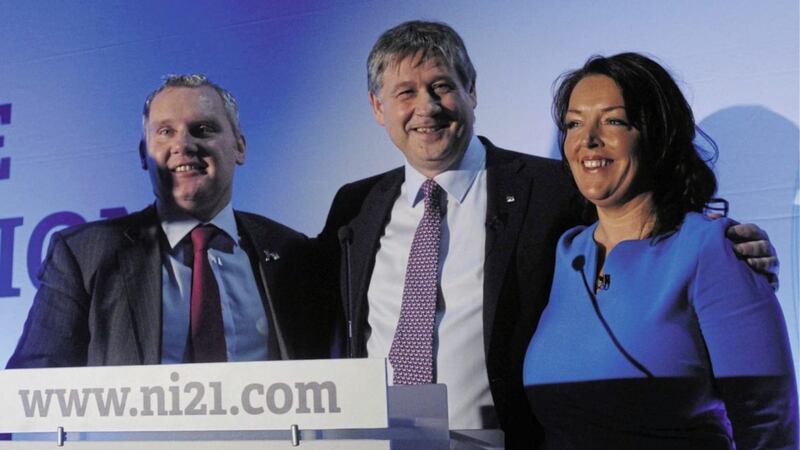A few days ago I came across a T S Eliot quote: 'For last year's words belong to last year's language. And next year's words await another voice.'
It summed up a thought that has been buzzing around my head for a few months now, about the lack of genuinely new voices and language in post-1998 GFA politics.
Most of the new political blood flows from and into the old political parties. Four of the five main parties (Alliance, DUP, SDLP and 'Provisional' Sinn Féin) came into being in 1970/71: a party-political response to the civil rights movement and the outbreak of the Troubles. The UUP fractured so much between 1969 and 1974 that what was left was, essentially, a new party.
This is exactly what should be expected at a time of crisis. New voices and vehicles do emerge and new names begin to dominate the political landscape. There has to be new thinking. There have to be new political and electoral choices. There need to be new pressure groups pushing agendas for new circumstances. We need to see new kinds of rallying and campaigning.
But what happens when the conflict ends? Do we just keep the old parties which have been at the centre of events for five decades; still carrying the same baggage and preferring to return to the old wounds and un-bandaged sores? Or do we encourage new voices and vehicles - as we did in 1970/71 - who don't yet have baggage and who are still brimming with the confidence in their abilities to do political business differently and better?
But where are those new voices and vehicles? Oh yes, I have seen quite a few people emerge since 1998 and some of them are very impressive. But the vast majority of them have been sucked into the existing parties, where each new membership card is fastened to at least one piece of extremely battered and dusty baggage. They will often describe themselves as new wine in old bottles, forgetting, of course, that all you end up with is something which is often undrinkable to non-party members or voters.
Listen to debates in the assembly and then close your eyes and try and tell the difference between the contributions of old members and those who have only recently joined. You'll be hard pushed to tell the difference: and that's because the young feel obliged to address and defend the past, rather than demonstrating the courage to acknowledge old errors and set out their own pathway to the future.
A few new vehicles have emerged, but too many have merely been off-shoots of the old, like the TUV and the NI Unionist Party (which split away from Bob McCartney's UKUP). The Greens and People Before Profit have also managed to make it to the assembly, but on a trickle rather than a tide. The most interesting attempt at a breakthrough was NI21, which did have something new to offer that section of the electorate which was looking for the 'something different' in post-1998 politics. But it imploded within months and killed off the dreams of more than just the leaders.
I remember addressing a weekend conference NI21 organised in the summer of 2013 and being astonished by both the enthusiasm and the obvious talent of the people there - most of whom were under 35. The vast majority had never been involved in local politics before: not because they weren't interested in politics, but because they weren't interested in the existing choices available to them. I met a couple about two years ago (they had met at the conference and married a couple of years later) and they told me that the whole experience of the implosion had put them off party-politics for good: "Does membership of a political party always lead to disappointment?"
In some senses yes, because politics is often brutal and good people and good parties don't necessarily do well in elections. But a post-conflict society (or a society which is trying to meet the definition of post-conflict) needs genuinely new parties and genuinely new voices. It also needs enthusiastic volunteers who are willing to knock doors and also be prepared to have those doors slammed in their faces.
Something drove the founders of Alliance, the SDLP and DUP to start their own parties in 1970/71. Something drove them to accept the setbacks and losses that go hand-in-hand with membership of a party. That's why it surprises me that there doesn't seem to be the same sort of something driving people to create new parties today. Maybe not enough people care because they really believe we can never be a post-conflict society. So be it: but next year's words are still waiting for new voices.








